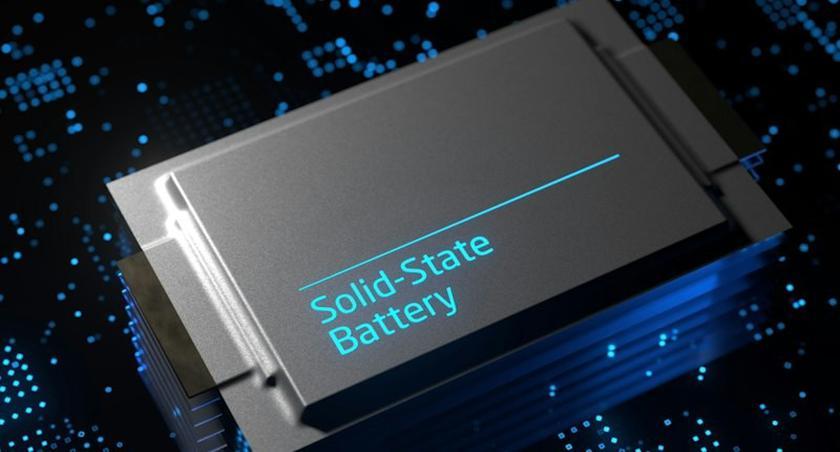United States Solid State Battery Market: Driving EV and Energy Storage Growth

Introduction
The United States Solid State Battery (SSB) Market is witnessing rapid growth as industries seek advanced energy storage solutions for electric vehicles (EVs), consumer electronics, and grid storage applications. Unlike conventional lithium-ion batteries, solid state batteries replace liquid electrolytes with solid materials, providing superior safety, higher energy density, longer lifespan, and improved thermal stability.
With the rising adoption of electric vehicles in the U.S., coupled with government initiatives to promote clean energy and reduce carbon emissions, solid state batteries are becoming a key focus area for automakers, tech companies, and research institutions. These batteries offer faster charging, lighter designs, and greater energy efficiency, which are crucial for next-generation transportation and renewable energy storage.
Market Dynamics
Drivers
- EV Adoption: Growing demand for electric vehicles is the primary driver of SSB development in the U.S.
- Safety and Durability: Solid electrolytes eliminate leakage risks and reduce thermal runaway, enhancing overall battery safety.
- High Energy Density: Ability to store more energy per unit volume supports longer driving ranges and portable device usage.
- Government Support: U.S. federal and state incentives promote EV infrastructure and research in advanced battery technologies.
- Technological Innovations: Continuous advancements in solid electrolyte materials, battery chemistry, and manufacturing processes.
Challenges
- High Production Costs: Manufacturing SSBs at scale remains expensive compared to conventional lithium-ion batteries.
- Material Availability: Limited supply of solid electrolyte materials can impact large-scale deployment.
- Technical Barriers: Scaling up from laboratory prototypes to commercial batteries requires addressing performance, consistency, and safety challenges.
- Market Competition: Lithium-ion and other advanced battery technologies continue to dominate the market.
Opportunities
- Automotive Applications: SSBs are ideal for electric cars, buses, and commercial vehicles due to their safety and high energy density.
- Grid Storage Solutions: Solid state batteries can enhance renewable energy storage, ensuring stability and reliability of power grids.
- Consumer Electronics: High-performance batteries can power smartphones, laptops, and wearable devices for longer durations.
- Strategic Partnerships: Collaboration between battery manufacturers, automakers, and research institutes can accelerate commercialization.
- Sustainability Focus: Reduced environmental impact compared to conventional batteries aligns with corporate ESG initiatives.
Market Segmentation
By Type
- Lithium-Metal Solid State Batteries: High energy density and preferred for automotive applications.
- Polymer-Based Solid State Batteries: Lightweight and flexible, suitable for portable electronics.
- Ceramic Solid State Batteries: Offers high stability and durability for industrial and grid applications.
By Application
- Electric Vehicles (EVs): Passenger cars, commercial vehicles, and buses.
- Consumer Electronics: Smartphones, laptops, tablets, and wearable devices.
- Grid Storage Systems: Renewable energy storage and backup power solutions.
- Aerospace & Defense: High-reliability batteries for critical operations.
By Region within U.S.
- California: Leading due to EV adoption and clean energy initiatives.
- Michigan: Focused on automotive battery research and manufacturing.
- Texas: Industrial and grid storage applications expanding.
- Other States: Emerging research hubs in battery innovation and startups.
Regional Analysis
California leads the U.S. SSB market with a strong presence of EV manufacturers, research facilities, and clean energy policies. Michigan is a key automotive battery hub, integrating SSBs into commercial vehicle prototypes. Texas emphasizes industrial and grid-scale storage, leveraging renewable energy expansion. Emerging regions across the U.S. contribute through R&D investments and technology incubators.
Key Trends
- Next-Generation Materials: Use of lithium-metal, sulfide, and ceramic electrolytes to improve performance.
- Faster Charging Capabilities: SSBs are being optimized for rapid charging in electric vehicles.
- Miniaturization for Electronics: Compact solid-state batteries for wearable and portable devices.
- Collaborative R&D: Partnerships among automakers, battery manufacturers, and universities to accelerate innovation.
- Sustainability Initiatives: Focus on recyclable materials and lower environmental impact.
Future Outlook
The United States Solid State Battery Market is poised for significant growth over the next decade. As EV penetration increases and technology matures, the cost of SSBs is expected to decrease, enabling wider adoption across automotive, grid, and consumer electronics sectors. Government incentives, research funding, and corporate commitments to clean energy will further drive commercialization. By 2035, solid state batteries could become mainstream, transforming the energy storage landscape in the United States.
Conclusion
The United States Solid State Battery Market is central to the future of clean energy, transportation, and advanced electronics. With its superior safety, high energy density, and technological adaptability, SSBs offer transformative potential for multiple industries. Continued innovation, strategic partnerships, and government support will ensure sustained market growth and widespread adoption.
- Art
- Causes
- Crafts
- Dance
- Drinks
- Film
- Fitness
- Food
- Игры
- Gardening
- Health
- Главная
- Literature
- Music
- Networking
- Другое
- Party
- Religion
- Shopping
- Sports
- Theater
- Wellness
